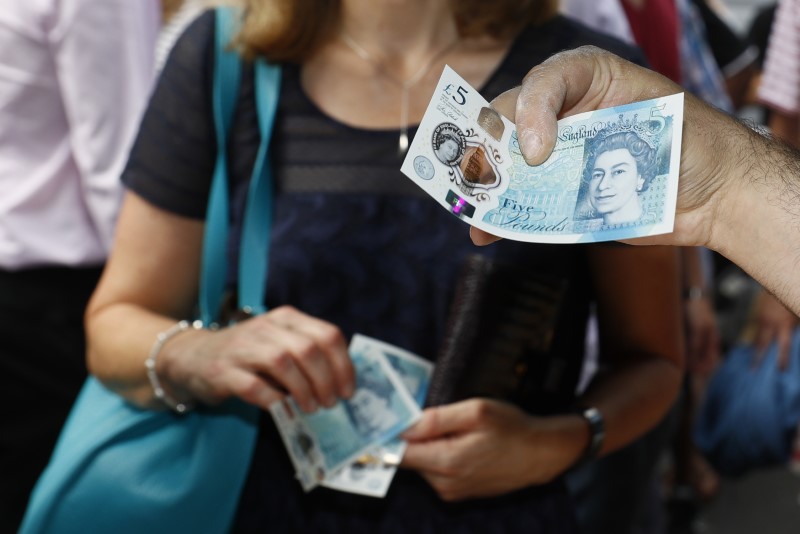Investing.com - The annual rate of change in Britain's consumer price index unexpectedly slowed to 2.4% last month, the Office for National Statistics said on Wednesday.
This was its lowest level since March 2017 and was below expectations for the reading to hold steady at the previous month’s 2.5% gain.
Month-over-month, consumer price inflation rose 0.4% in April.
That compared to an increase of 0.1% in the previous month.
Analysts had expected a gain of 0.5%.
Core CPI, which excludes food, energy, alcohol, and tobacco costs, rose at a seasonally adjusted rate of 2.1% last month, below forecasts for an increase of 2.2%.
Core inflation advanced 2.3% in March.
The retail price index (RPI) increased by 3.4% on an annualized basis in April, compared to previous month’s 3.3% rise.
The reading was in line with the consensus forecast.
Month-on-month, RPI increased by 0.5% in April, in line with expectations.
RPI increased 0.1% in March.
Core RPI increased at an annualized rate of 3.4% in April, matching the prior month’s reading.
Economists had expected a gain of just 3.3%.
Month-on-month, core RPI rose by 0.5% in April, compared to the 0.1% advance in the previous month.
The ONS indicated that the largest downward contribution to the change in the rate came from air fares, which it noted were influenced by the timing of Easter.
“Rising prices for motor fuels produced the largest, partially offsetting, upward effect,” the ONS said in the report.
For markets, the low level of inflation may ease pressure on the Bank of England to move forward with policy tightening. Traders are currently split over whether there will be a rate hike in August.
In testimony to the Treasury Select Committee on Tuesday, BoE governor Mark Carney reiterated that the central bank expects interest rates to rise at a limited and gradual rate.
